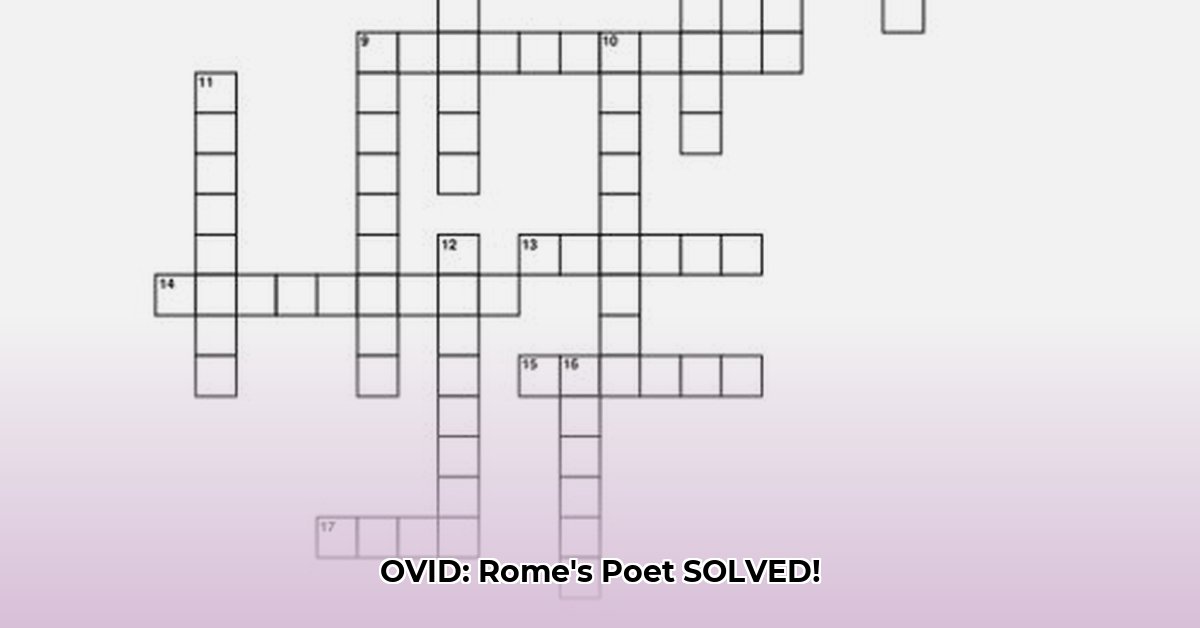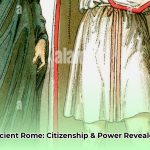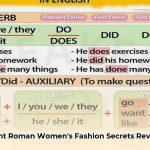Are you facing the classic crossword clue “Poet of Ancient Rome” and finding yourself stuck? This guide is your definitive resource, designed to transform you from a perplexed solver into a crossword champion. While OVID often serves as the primary answer, the rich tapestry of Roman literature offers many more possibilities. For more, explore Poets of Ancient Rome and broaden your understanding. We’ll delve into the most common solutions, explore other significant Roman poets who might fit the bill, and equip you with powerful, actionable strategies to decode even the trickiest classical clues every time. Master this common conundrum and elevate your entire crossword-solving game.
Unlocking the Classical Code: The Usual Suspects
When the clue “Poet of Ancient Rome” appears, especially for a four-letter slot, Ovid is almost invariably the correct solution. Publius Ovidius Naso, known simply as Ovid, was a prolific Roman poet celebrated for transformative works like Metamorphoses, a narrative poem recounting mythological changes, and Ars Amatoria (The Art of Love). His concise, memorable name, combined with his enduring fame, makes him a perpetual favorite among puzzle constructors. So, if your grid offers four empty squares, confidently consider OVID as your first choice.
However, crosswords frequently employ clever misdirection. The number of letters available in the puzzle’s grid is often the crucial factor in identifying the correct poet. This simple detail immediately narrows your possibilities, preventing unnecessary frustration.
Beyond OVID: The Roman Pantheon of Poets
While Ovid holds a strong position, the Roman literary world boasted many other influential poets. Understanding their names and typical lengths is key to solving variations of this clue.
- Virgil: If your answer requires six letters, you are almost certainly looking for Virgil. Publius Vergilius Maro is the author of The Aeneid, an epic poem detailing the legendary origin of the Roman people. His work is central to Western literature and frequently appears in crosswords.
- Horace: Also a six-letter possibility, Horace (Quintus Horatius Flaccus) is renowned for his lyrical Odes and incisive Satires. He often explored themes of friendship, philosophy, and the simple life, famously coining the phrase “Carpe Diem” (seize the day). Consider Horace, especially if the clue hints at a specific poetic form or philosophical content.
- Martial: For a seven-letter answer, Martial (Marcus Valerius Martialis) becomes a strong contender. He gained fame for his witty, often biting, Epigrams, which offered sharp, satirical observations on daily Roman life. His concise and pointed style makes him a distinct figure.
Lesser-Known Roman Poets (for Advanced Puzzles)
While less common in general crosswords, some specialized or more challenging puzzles might feature other Roman poets. Knowing a few more names and their primary contributions can give you an edge:
- Catullus: (8 letters) Gaius Valerius Catullus was known for his passionate and often explicit lyric poetry, particularly his love poems addressed to “Lesbia.”
- Propertius: (10 letters) Sextus Propertius was an elegiac poet, famous for his intricate and often dramatic love elegies, many addressed to his mistress “Cynthia.”
- Juvenal: (7 letters) Decimus Iunius Iuvenalis was a satirist, whose Satires offer a scathing critique of Roman society, often marked by a tone of moral indignation.
- Statius: (7 letters) Publius Papinius Statius was an epic poet and author of the Thebaid, an epic about the Seven Against Thebes, and the Achilleid, an unfinished epic about Achilles.
- Seneca: (6 letters) Lucius Annaeus Seneca was primarily a Stoic philosopher and statesman, but also a prominent tragedian whose plays influenced Renaissance drama.
Mastering the Strategy: Becoming a Crossword Champion
Beyond memorizing names, successful crossword solving hinges on strategic thinking. Every clue offers fragments of information; learning to interpret these hints elevates your success rate.
- Count Carefully: Your first step should always be to count the exact number of empty squares. This immediately eliminates many potential answers and directs your focus.
- Utilize Intersections: Examine any letters already filled in from intersecting words. Do these letters align definitively with Ovid, Virgil, Horace, or another known Roman poet? A single confirmed letter can unlock an entire answer, like a missing piece of a jigsaw puzzle.
- Context is King: Pay close attention to additional descriptors within the clue. Does it mention a specific work (e.g., “Metamorphoses“, “The Aeneid“) or a particular poetic style (epic, lyric, satirical, elegiac)? Even subtle hints in the clue’s tone or phrasing can be telling. For example, “Roman poet of love elegies” strongly suggests Ovid or Propertius, while “Epic Roman poet” points to Virgil.
- Consider Puzzle Theme and Publication: The overall theme of the crossword can offer vital clues. Is it a historical puzzle, a literary one, or perhaps themed around classical mythology? Some publications might also have a leaning towards certain, more frequently used answers or possess specific stylistic quirks. Recognizing these patterns can often guide you to the less obvious solutions.
Common Pitfalls and What to Watch For
- Greek vs. Roman: Ensure the clue specifies “Roman” or “Ancient Rome.” Poets like Homer or Sappho are from ancient Greece and would not fit this clue.
- Philosopher vs. Poet: Some figures were both (like Seneca). If the clue emphasizes “philosopher” or specific philosophical works, the answer might lean away from their poetic output.
- Specific Eras: While “Ancient Rome” is broad, some clues might specify “Augustan Age” or “Silver Age,” which can further narrow down the possibilities.
Enhancing the Puzzle Experience: Deeper Understanding for Enthusiasts
For those who create crosswords or manage crossword solving platforms, diversifying clues related to “Poet of Ancient Rome” not only challenges seasoned solvers but also educates them on the profound depth of Roman literature.
- For Puzzle Makers: To make the clue more engaging and fair, consider referencing a less popular Roman poet, alluding to an obscure but significant work, or employing clever wordplay. Clues like “Poet exiled to Tomis” (OVID), “Satirical Roman poet with sharp wit” (Juvenal or Martial), or “Roman poet of the Golden Age” (could be Virgil or Horace) introduce specific knowledge that rewards solvers’ deeper understanding.
- For Website Hosts: Maintaining a comprehensive, easily searchable database of Roman poets, categorized by name length, notable works, and key facts, significantly enhances the solver’s experience. Tracking which clues are trending or causing difficulty can also inform content optimization, ensuring your platform remains a valuable, indispensable resource.
Key Takeaways and Future-Proofing Your Crossword Skills
Ultimately, conquering the “Poet of Ancient Rome” crossword clue, and indeed most challenging puzzles, boils down to combining foundational knowledge with strategic analytical thinking.
Here are the pivotal insights to remember:
- “OVID” is the most frequent answer, especially for four-letter slots, owing to his widespread fame and convenient name length.
- The letter count and contextual clues (such as specific works, poetic styles, or puzzle themes) are crucial for identifying other prominent Roman poets like Virgil, Horace, and Martial.
- Broadening your knowledge of Roman poets and their major contributions significantly improves your long-term crossword-solving efficacy, equipping you for both common and complex clues.
| Poet | Length (Letters) | Era/Period | Defining Characteristic/Notable Works |
|---|---|---|---|
| Ovid | 4 | Augustan Age | Metamorphoses, Ars Amatoria; master of elegiac couplet, exiled |
| Virgil | 6 | Augustan Age | Aeneid; epic poet of Rome’s founding, patroned by Augustus |
| Horace | 6 | Augustan Age | Odes, Satires; lyric poet, famous for “Carpe Diem” philosophy |
| Martial | 7 | Silver Age | Epigrams; master of witty and often satirical short poems |
| Catullus | 8 | Late Republic | Passionate lyric poet, known for personal love poems to “Lesbia” |
| Propertius | 10 | Augustan Age | Elegiac poet, known for complex love elegies to “Cynthia” |
| Juvenal | 7 | Silver Age | Satirist, offered sharp social critique of Roman society |
| Statius | 7 | Silver Age | Epic poet (Thebaid), influenced later epic traditions |
| Seneca | 6 | Silver Age | Stoic philosopher, tragedian (plays influenced Renaissance drama) |
By integrating these poets and strategies into your mental arsenal, you’ll be well on your way to mastering even the trickiest classical clues. For further exploration and assistance with specific clues, reliable resources offer a treasure trove of information that can guide you through the intricate world of crosswords with greater ease, helping you navigate complex grids and expand your literary horizons.
Happy puzzling, and may your solutions always fit perfectly!










